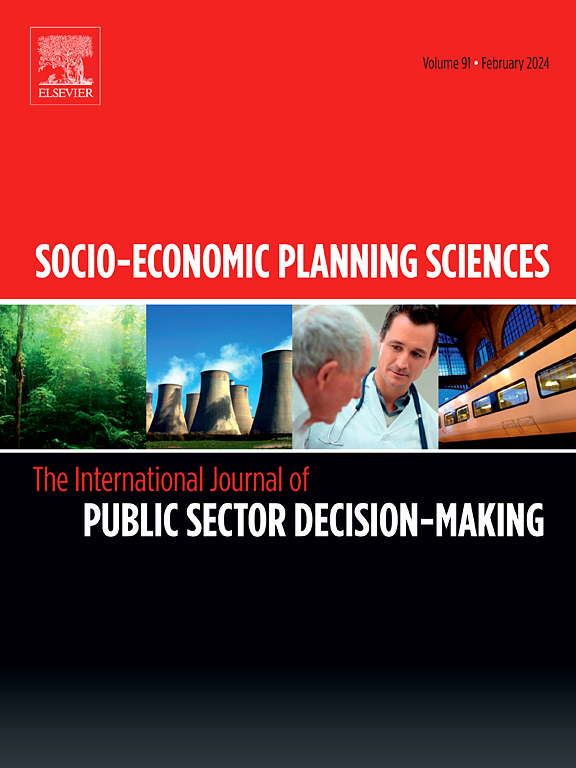Does public satisfaction with government environmental performance promote their participation in environmental protection?
IF 5.4
2区 经济学
Q1 ECONOMICS
引用次数: 0
Abstract
Effective public participation is a key element of sustainable environmental governance. Despite high levels of concern about pollution among Chinese citizens, their actual participation in governance activities remains suboptimal. Local governments, as socio-economic planning policy makers, may significantly shape individuals’ behavior, yet this influence has not been fully explored. This study investigates how public satisfaction with government environmental performance affects their willingness and actual participation in environmental protection efforts, drawing on the latest data from the Chinese Social Survey. The results show that individuals who express higher satisfaction with government environmental performance are more likely to exhibit greater willingness and active involvement in voluntary environmental initiatives. Mechanism analysis reveals that greater public recognition enhances environmental awareness and government credibility. This research provides critical insights for public sector decision-making, emphasizing that improving government performance in environmental governance can foster sustainable public engagement.
公众对政府环保表现的满意是否会促进他们参与环保?
有效的公众参与是可持续环境治理的关键要素。尽管中国公民对污染问题高度关注,但他们对治理活动的实际参与程度仍不理想。地方政府作为社会经济规划的决策者,可能会对个人行为产生重大影响,但这种影响尚未得到充分探讨。本研究利用中国社会调查的最新数据,调查公众对政府环境绩效的满意度如何影响他们的环保意愿和实际参与。结果表明,对政府环境绩效表现满意的个人更有可能表现出更大的自愿环境行动意愿和积极参与。机制分析表明,公众认可度越高,环境意识越强,政府公信力越高。本研究为公共部门决策提供了重要见解,强调提高政府在环境治理方面的绩效可以促进可持续的公众参与。
本文章由计算机程序翻译,如有差异,请以英文原文为准。
求助全文
约1分钟内获得全文
求助全文
来源期刊

Socio-economic Planning Sciences
OPERATIONS RESEARCH & MANAGEMENT SCIENCE-
CiteScore
9.40
自引率
13.10%
发文量
294
审稿时长
58 days
期刊介绍:
Studies directed toward the more effective utilization of existing resources, e.g. mathematical programming models of health care delivery systems with relevance to more effective program design; systems analysis of fire outbreaks and its relevance to the location of fire stations; statistical analysis of the efficiency of a developing country economy or industry.
Studies relating to the interaction of various segments of society and technology, e.g. the effects of government health policies on the utilization and design of hospital facilities; the relationship between housing density and the demands on public transportation or other service facilities: patterns and implications of urban development and air or water pollution.
Studies devoted to the anticipations of and response to future needs for social, health and other human services, e.g. the relationship between industrial growth and the development of educational resources in affected areas; investigation of future demands for material and child health resources in a developing country; design of effective recycling in an urban setting.
 求助内容:
求助内容: 应助结果提醒方式:
应助结果提醒方式:


